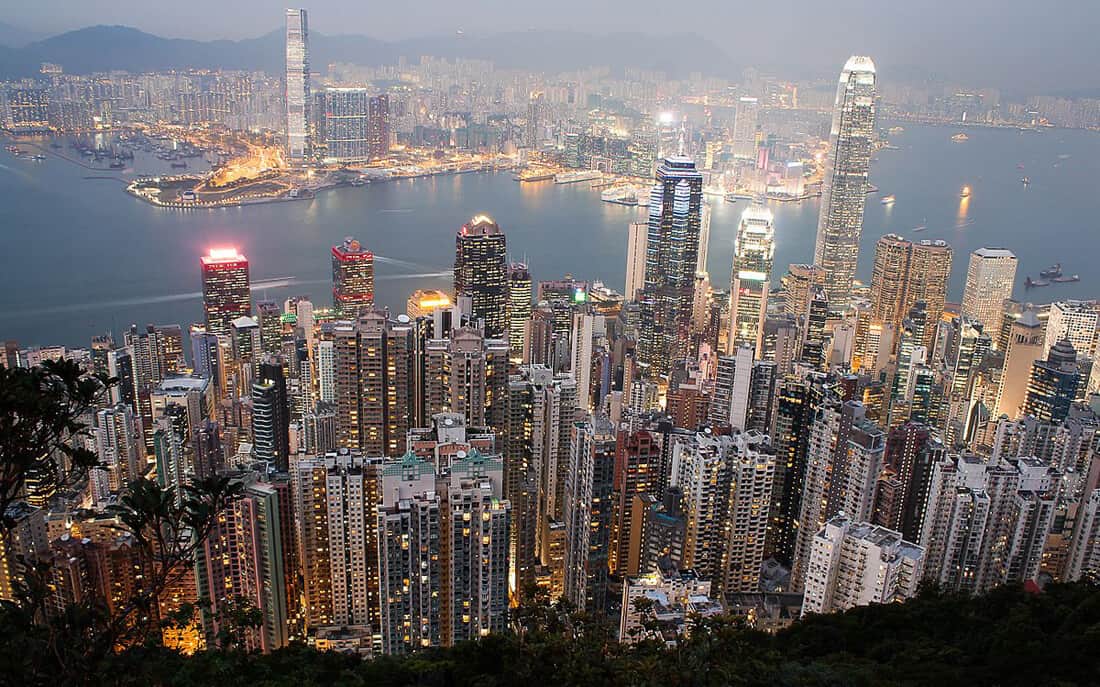Hong Kong and Singapore, two bustling metropolises in Asia, stand as dynamic economic powerhouses in the region. Each city-state boasts its unique blend of culture, commerce, and innovation, making them prominent global players.
On Tuesday, the Fraser Institute released its annual Economic Freedom of the World report, marking a historic moment as Hong Kong, for the first time since the institute’s inception in 1996, relinquished its leading position to settle for second place.
Singapore has overtaken Hong Kong in the recent global economic freedom ranking unveiled by the Canadian think tank on Tuesday. The report cites increasing interference from Beijing and a diminishing trust in Hong Kong’s legal system as key factors in this shift. In response, the local government has strongly criticized these assertions as “totally groundless.”
In the 2022 edition, Singapore ascended to the number one spot among the 165 jurisdictions featured in the report, narrowly surpassing Hong Kong by a mere 0.01 points.
However, in a press release issued on Tuesday, the Hong Kong government refuted the think tank’s assertions, labeling them as “factually wrong” and “totally groundless. The government emphasized its unwavering commitment to upholding the principles of “one country, two systems,” “Hong Kong people administering Hong Kong,” and maintaining a significant degree of autonomy, as outlined in the city’s mini-constitution, the Basic Law. Additionally, they highlighted that Hong Kong is transitioning from a state of stability to a new phase of economic growth and prosperity.
The report assessed various factors, including regulations, international trade freedom, government size, the legal system, property rights, and sound monetary policies, to gauge individuals’ economic decision-making freedom. The 2023 report relies on data from 2021, the most recent year with available statistics for all jurisdictions.
Hong Kong experienced a 0.25-point reduction in regulatory aspects and a 0.20-point decline in components related to the legal system and property rights, resulting in an overall score of 8.55 out of 10. This marks a 0.40-point decrease compared to the 2019 score. In contrast, Singapore achieved a score of 8.56, securing the top position in the rankings.
The institute pointed out that the decline in regulation scores was attributed to fresh obstacles for market entry, restrictions on the hiring of foreign workers, and rising operational expenses. On the other hand, factors such as “heightened military involvement” in the realm of law and diminishing trust in the court system and the judiciary were responsible for the decreased scores in the legal domain.
Matthew Mitchell, a senior fellow at the Fraser Institute, noted, Hong Kong’s recent shift illustrates the close relationship between economic freedom and civil and political liberties. The Chinese government’s objective was to suppress political and civil dissent, and these restrictions inevitably resulted in a reduction of economic freedom.
A government spokesperson countered the institute’s claims regarding new barriers to entry and restrictions on foreign labor employment, categorizing them as unfounded. They emphasized that there have been no alterations to labor policies in Hong Kong.
The spokesperson also defended Hong Kong’s legal system and judicial independence, asserting that fundamental rights and freedoms, including equality before the law, are guaranteed in both the Chinese Constitution and the Basic Law. Additionally, they noted that the Garrison Law prohibits any military interference in the courts.
Furthermore, the spokesperson criticized the 2023 report for making biased comments about the implementation of the national security law, highlighting that the city considers national security a top priority within the One Country, Two Systems framework.
The 2023 report contextualized the security law as part of Beijing’s broader economic and political actions in Hong Kong.
In June 2020, Beijing unilaterally introduced national security legislation into Hong Kong’s mini-constitution, bypassing the local legislature. This move followed a year of pro-democracy protests and unrest and resulted in the criminalization of actions such as subversion, secession, collusion with foreign forces, and terrorist acts, with broadly defined provisions that included disruption to transportation and infrastructure. These measures granted the police expanded powers, causing concerns among democrats, civil society groups, and trade partners, as similar laws in China have frequently been employed to stifle and penalize dissent. However, authorities argue that these measures have restored stability and peace to the city.
In 2021, the Heritage Foundation, a Washington-based public policy group, removed Hong Kong from its economic freedom index, ending its 25-year streak as the chart topper. The foundation cited Beijing’s increasing control over Hong Kong’s economic policies as the reason for this change.
The 2023 report ranked Switzerland in third place, the United States in fifth place, Taiwan in 11th place, Japan in 20th place, and China in 111th place in terms of economic freedom.
(Source: Hans Tse | HKFP)









